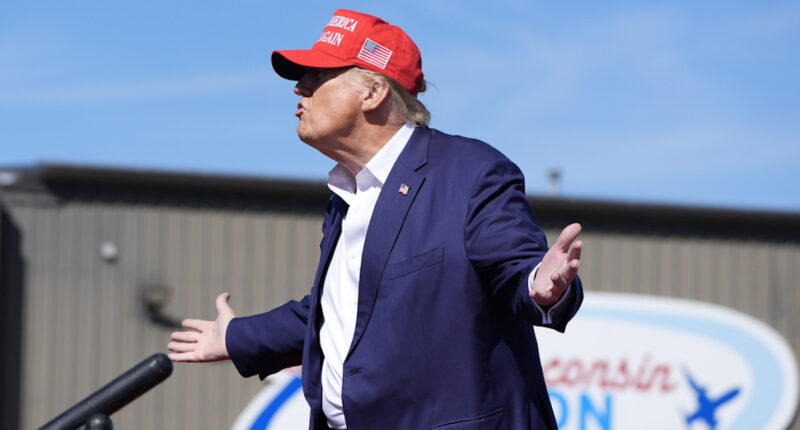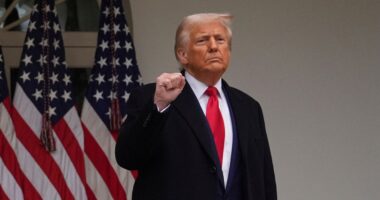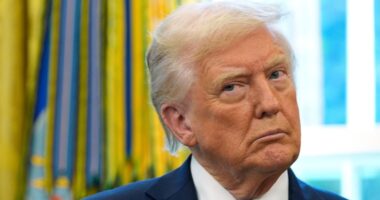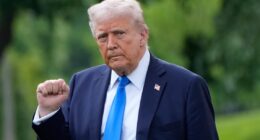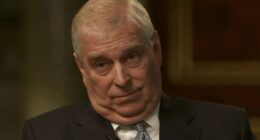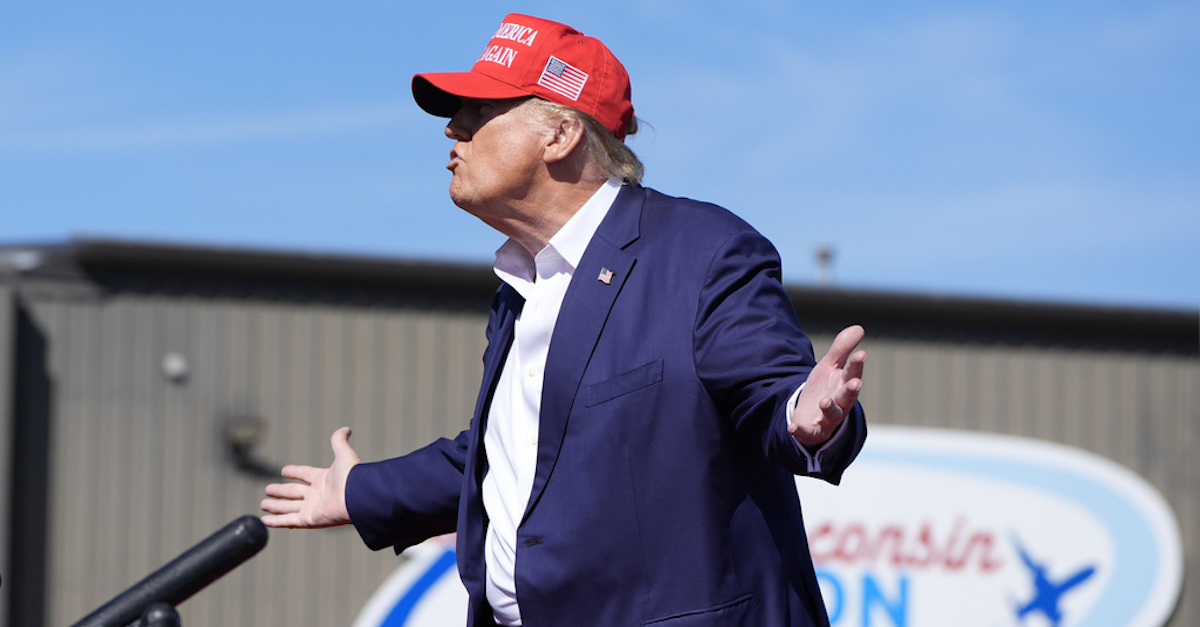
There is one paragraph in the content.
Donald Trump is once again imploring the judge in his New York criminal hush-money case to toss out the president-elect’s felony convictions, claiming that the verdict was corrupted by “grave juror misconduct during the trial.”
In court documents initially filed earlier this month and released Tuesday, Trump argued that the alleged misconduct “further illustrates the manifest unfairness of these proceedings and serves as yet another reason that the verdicts in the case cannot and should not stand.”
“As foreshadowed by the pre-trial polling that President Trump submitted to the Court in April 2024 and the extraordinary level of bias reflected in self-selecting and other successful for-cause challenges during jury selection — as well as common sense — the jury in this case was not anywhere near fair and impartial,” the letter from Trump attorneys Todd Blanche and Emil Bove states. “The extensive and pervasive misconduct at issue violated President Trump’s rights under the federal Constitution and New York law. Under normal circumstances, unlike this politically motivated lawfare, a defendant could file a motion to vacate the verdicts.”
The details of the allegations being made by Trump’s legal team remain unknown, as Acting New York Supreme Court Justice Juan Merchan ordered the substance of the claims to be redacted from court documents before being posted to the public docket, primarily to ensure juror safety.
In a letter issued Monday, Merchan wrote that allowing Trump’s letter to be filed without redactions “would only serve to undermine the integrity of these proceedings while simultaneously placing the safety of the jurors at grave risk.”
He further emphasized that the redactions to Trump’s misconduct filing were necessary because the filing “consists entirely of unsworn allegations,” which cannot be the basis for a motion to set aside a verdict on the grounds of juror misconduct.
“Allegations of juror misconduct should be thoroughly investigated,” Merchan wrote. “However, this Court is prohibited from deciding such claims on the basis of mere hearsay and conjecture.”
Trump already told the court that he does not plan to file a motion to have his conviction vacated for juror misconduct, Merchan said. However, should Trump change course and file such a motion, Merchan said the court will revisit the redactions to the filing.
The misconduct allegations were released the same day Merchan issued an order refusing to throw out Trump’s convictions in light of the Supreme Court’s sweeping presidential immunity decision, reasoning that the actions resulting in Trump being found guilty related “entirely to unofficial conduct” from his first tenure in office.
Trump in May 2024 was convicted on 34 felony counts of falsifying business records in the Empire State. The charges resulted from a $130,000 hush-money payment made by Trump’s former personal attorney and fixer, Michael Cohen, to adult content creator Stormy Daniels in October 2016.
The highly anticipated ruling from Merchan reasoned that Trump’s actions resulted in “overwhelming evidence of guilt” and were not at odds with the high court’s recent ruling granting immense prosecutorial immunity for the “official actions” of a president.
“The People’s use of these acts as evidence of the decidedly personal acts of falsifying business records poses no danger of intrusion on the authority and function of the Executive Branch,” Merchan wrote in the 41-page ruling.
